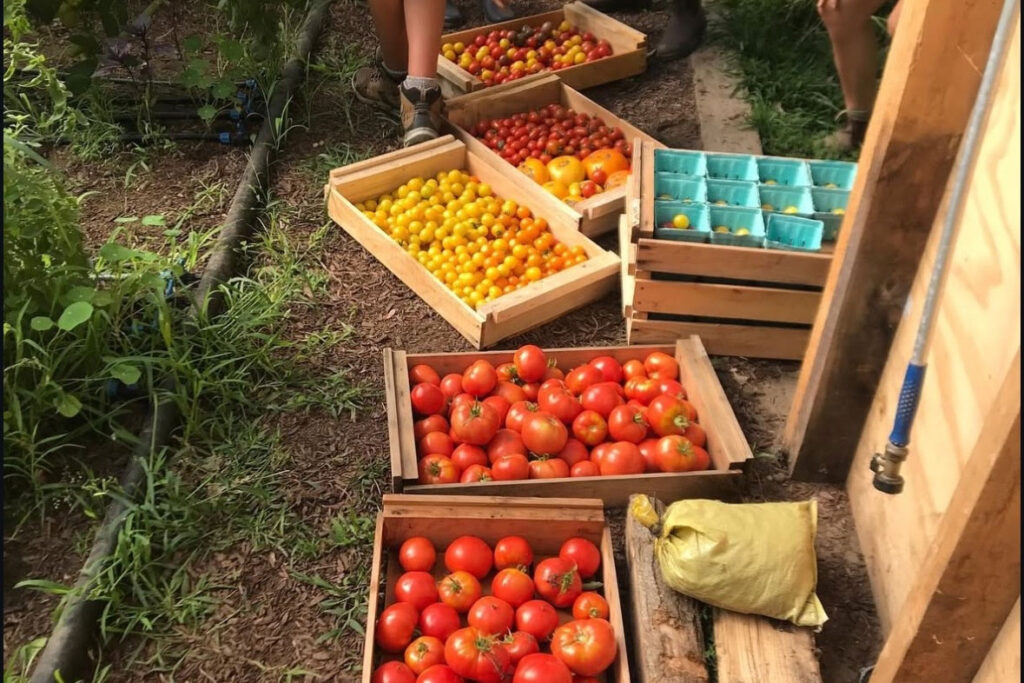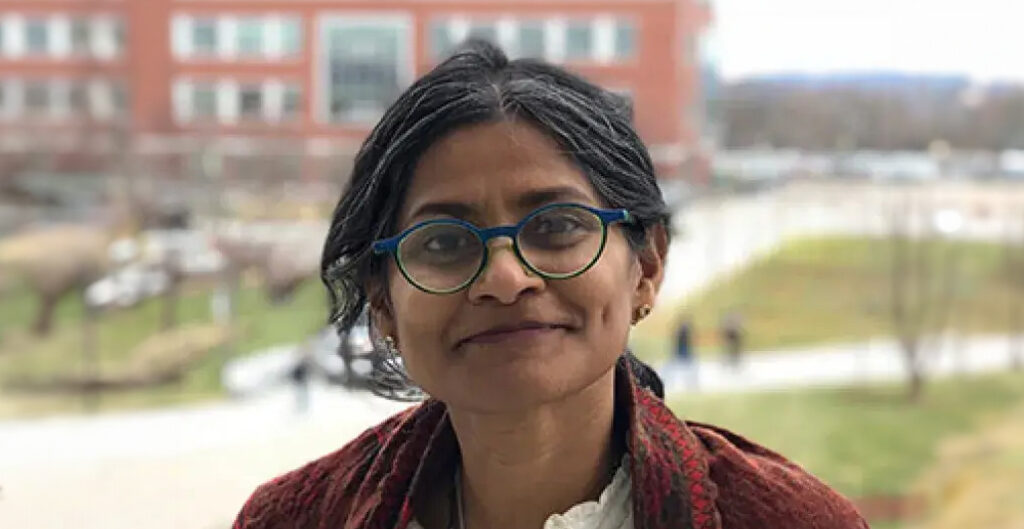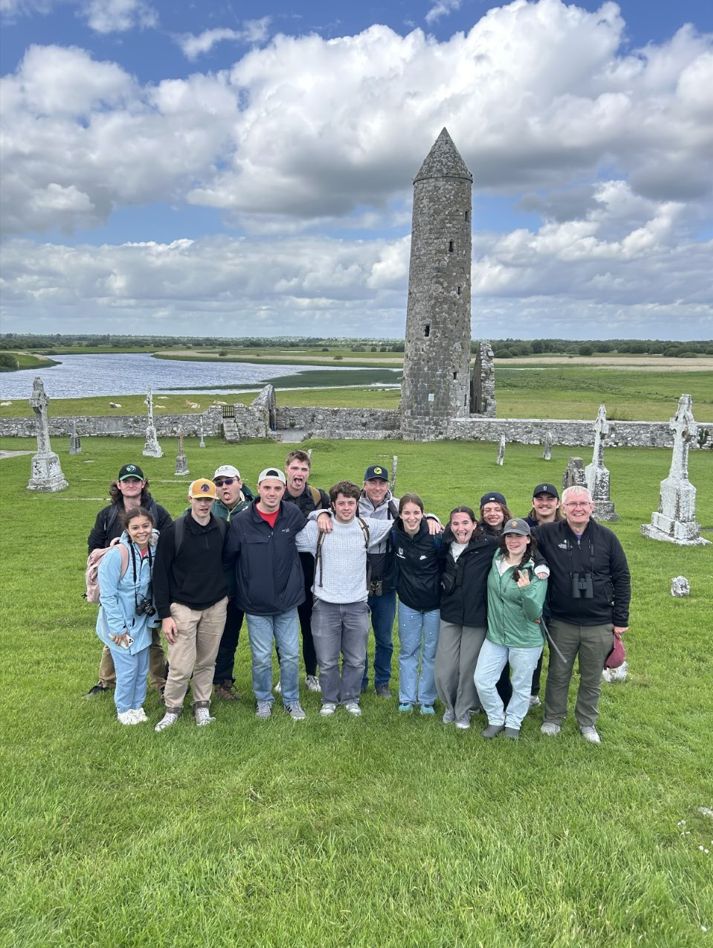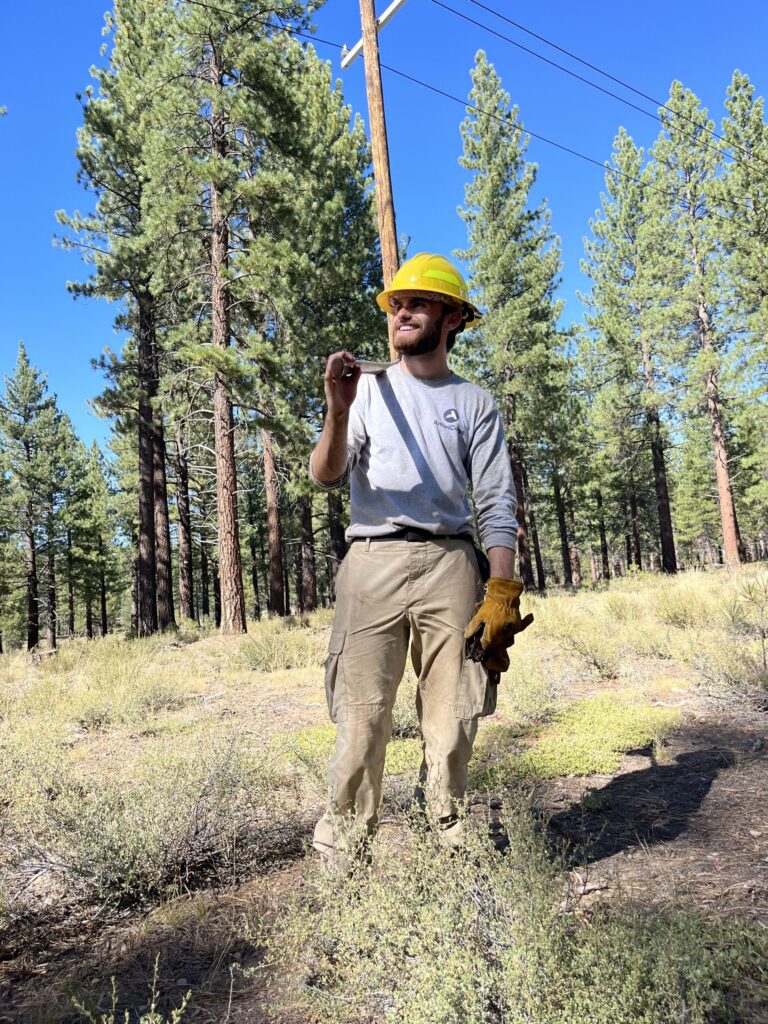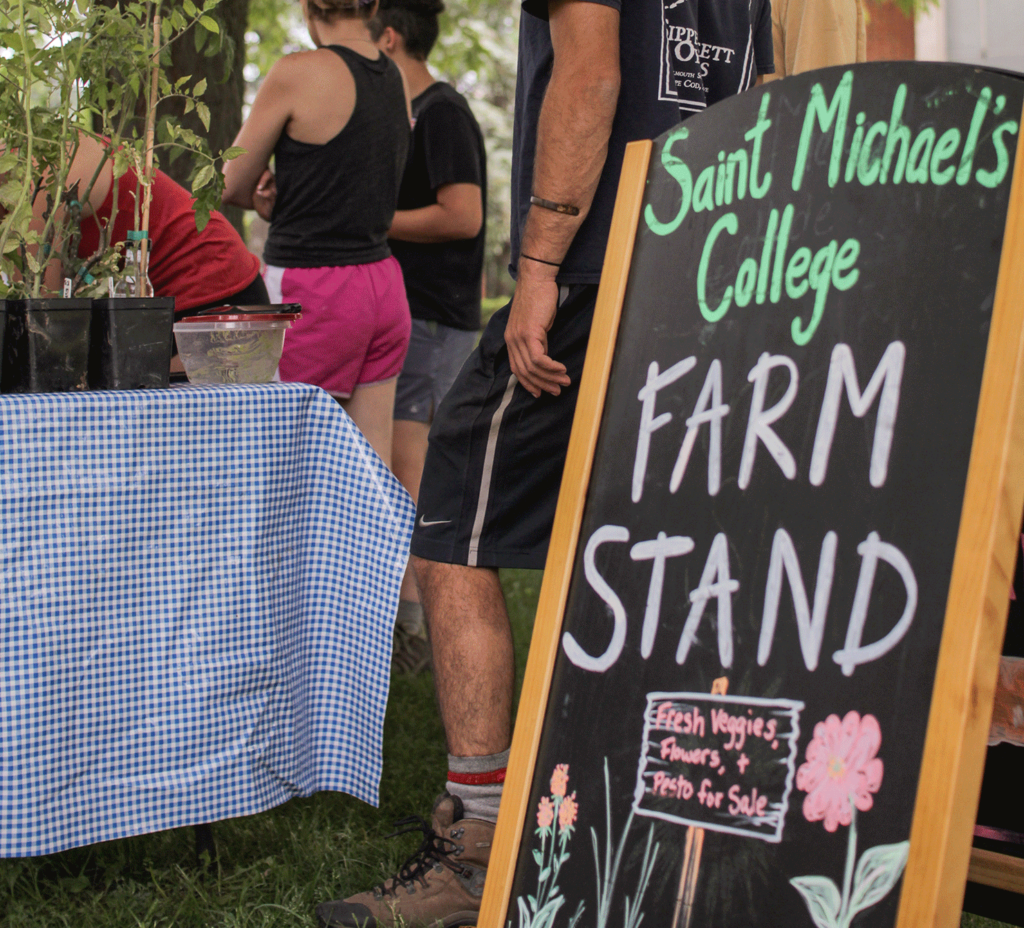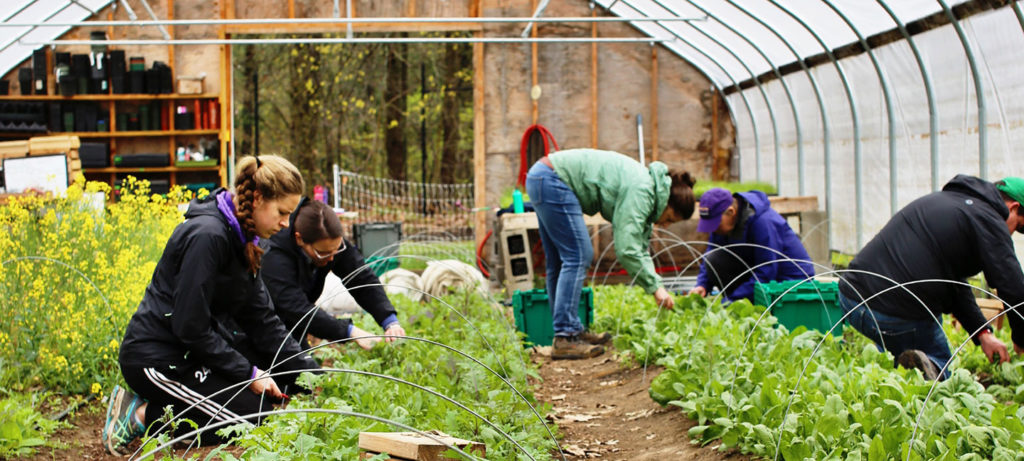It’s the dead of winter. We are still inside the Persephone Period. The forecast calls for temperatures not getting out of the single digits next week. It looks like the plants are inactive. Frozen in time. But, we know that plants are setting roots. Just like we are hoping to do with integrating outdoor and living classrooms into courses and student experiences for the spring. We are setting roots.

Carrot paperweight holds down Facey’s printed lab experiment.
Just take Professor Emeritus Doug Facey’s 2019 Community Ecology course as an example. He wanted to extend how his students saw lab experiences and integrate the outdoor and living classrooms into his courses. So, he ran labs with tomato plants. He and Kristyn Achilich co-developed a learning experience with tomatoes on the farm. And, because the farm team knew about this experience in advance, they were able to design the tomato planting for this very purpose, and then sell them in the CSA, to Sodexo, and at the Farm Stand. Together, they designed an experiment that allowed the students to explore core principles of community ecology – competition, parasitism, mutualism, commensalism, and symbiosis. They planted:
- Tomatoes (alone)
- Tomatoes + Clover.
- Tomatoes + Clover + Basil.
The experimental question: Do ecological plantings affect yield?

Hoop House on the Farm containing rows of young tomato plants.
Students were not just observing something in nature, but by working with Kristyn they developed a controlled experiment that both leveraged the farm’s programming and contributed to the success and functioning of the farm. Teams of students conducted an experiment to see how the tomatoes responded to being co-planted with other plants like clover and basil and looked at the results. Students were able to DO science. The planting, running the experiment, collecting the data, and analyzing the results. Right on their own campus, with a local food producer and community resource. And, the farm shifted its tomato growing practices based on the experiment’s results.

Visitors and volunteers are welcomed to the Farm by a sign-in sheet near the mature tomato plants.
According to Professor Emeritus, Doug Facey, “Working with [Kristyn] and the farm with that study provided an opportunity to do something with ‘real-world’ application that we would not have been able to do otherwise.”
Exactly. Connecting theory to practice. Upping the engagement, learning the practice of science, place based, local, and supplying food for the local community. It is a win-win-win all around!
And to boot, the farm yielded 1000 pounds of tomatoes that year!
We can help plan a hands-on learning experience integrated with your course content and goals. Review our Community Guide to Using the Outdoor & Living Classrooms as a way to begin generating ideas!

Tomatoes during harvest.

For all press inquiries contact Elizabeth Murray, Associate Director of Communications at Saint Michael's College.
